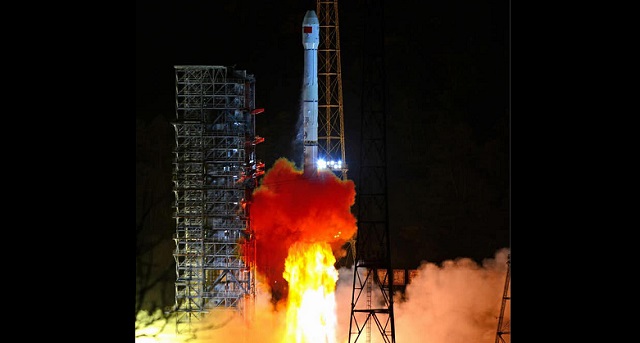
In terms of military applications, China has also demonstrated significant skills. In 2007, it undertook an anti-satellite test, launching a ground-based missile to destroy a failed weather satellite. While successful, the test created a cloud of orbital debris that continues to threaten other satellites. The movie “Gravity” illustrated the dangers space debris poses to both satellites and humans. In its 2018 report on the Chinese military, the Department of Defense reported that China’s military space program “continues to mature rapidly.”
Despite its capabilities, the U.S., unlike other countries, has not engaged in any substantial cooperation with China because of national security concerns. In fact, a 2011 law bans official contact with Chinese space officials. Does this signal a new space race between the U.S. and China?
As a space policy researcher, I can say the answer is yes and no. Some U.S. officials, including Scott Pace, the executive secretary for the National Space Council, are cautiously optimistic about the potential for cooperation and do not see the beginning of a new space race. NASA Administrator Jim Brindenstine recently met with the head of the Chinese space program at the International Astronautical Conference in Germany and discussed areas where China and the U.S. can work together. However, increased military presence in space might spark increased competition. The Trump administration has used the threat posed by China and Russia to support its argument for a new independent military branch, a Space Force.
Regardless, China’s abilities in space are growing to the extent that is reflected in popular culture. In Andy Weir’s 2011 novel “The Martian” and its later film version, NASA turns to China to help rescue its stranded astronaut. While competition can lead to advances in technology, as the first space race demonstrated, a greater global capacity for space exploration can also be beneficial not only for saving stranded astronauts but increasing knowledge about the universe where we all live. Even if China’s rise heralds a new space race, not all consequences will be negative.
****
Wendy Whitman Cobb is Associate Professor of Political Science, Cameron University
 The Independent Uganda: You get the Truth we Pay the Price
The Independent Uganda: You get the Truth we Pay the Price


